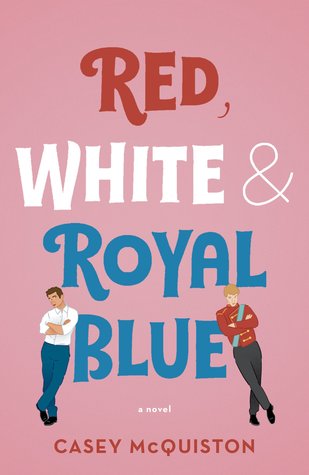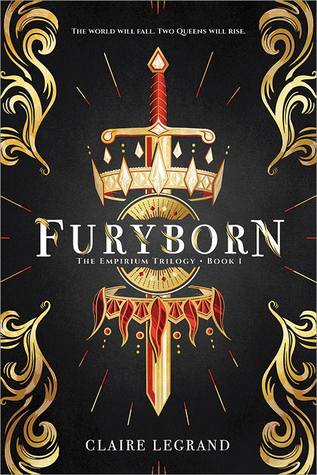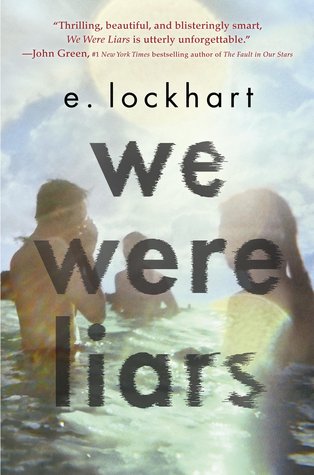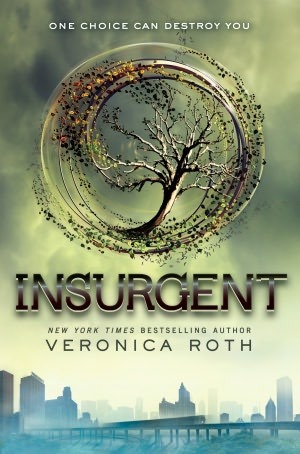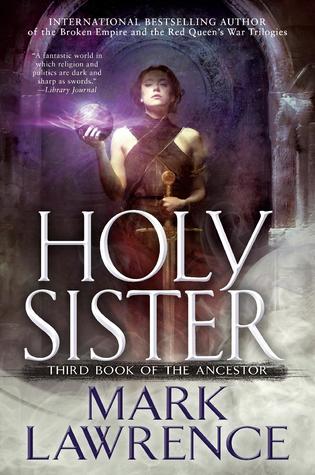
Synopsis:
Maia Tamarin dreams of becoming the greatest tailor in the land, but as a girl, the best she can hope for is to marry well. When a royal messenger summons her ailing father, once a tailor of renown, to court, Maia poses as a boy and takes his place. She knows her life is forfeit if her secret is discovered, but she'll take that risk to achieve her dream and save her family from ruin. There's just one catch: Maia is one of twelve tailors vying for the job.
Backstabbing and lies run rampant as the tailors compete in challenges to prove their artistry and skill. Maia's task is further complicated when she draws the attention of the court magician, Edan, whose piercing eyes seem to see straight through her disguise.
And nothing could have prepared her for the final challenge: to sew three magic gowns for the emperor's reluctant bride-to-be, from the laughter of the sun, the tears of the moon, and the blood of stars. With this impossible task before her, she embarks on a journey to the far reaches of the kingdom, seeking the sun, the moon, and the stars, and finding more than she ever could have imagined.
Rating: 🌟🌟🌟
3.5 stars. Spin the Dawn started off as a 5 star read for me. I'd been in a bit of a reading slump prior to starting this but right off the bat, this book had me hooked.
I loved the writing, the world, the characters - everything! I read
about half of the book in one sitting, because I just couldn't put it
down.
Writing is always what makes or breaks a novel for me. Because YA tends more towards simplistic prose than its adult counterparts, I often end up dnfing YA books because I can't get into the writing. But as soon as I started reading, I knew Elizabeth Lim was a skilled writer. Her lush descriptions and interesting language is what pulled me into the story before anything else did. Only 3% of the way into the novel and I was already loving it, simply because the language on the page was so lovely.
Though the writing itself initially drew me in, one of my favorite tropes is competition stories, and so I expected the tailor competition to entice me right away. But, surprisingly, it was the characters. I was anticipating a reality TV-type competition, full of drama and beautiful clothes - and was totally wrong. The competition was pretty reserved, if I'm being honest. But seeing Maia's courage, skill, and determination as she tried to navigate the competition and become the emperor's tailor made me root for her. She wasn't just a vehicle for drama during the competition, like other characters have been in other competition-focused series. Lim takes the focus off the competition and puts the spotlight on Maia, which is something I haven't seen much before.
During the competition, several other characters orbit Maia, mainly the Lord Enchanter, Edan, and the emperor's betrothed, Lady Sarnai. Both remained very unpredictable characters for me in the first half of the novel, which was really refreshing to me, as a person who tends to call the twists before they happen. Lady Sarnai, especially, was a hard character to nail down. Whenever I thought I knew how she'd react to something, she'd do the exact opposite and always kept me on my toes.
As for Edan, it's established early on in the novel that he's much older than he looks. I have trouble with the believability of immortal/long-lived characters in YA sometimes, due to their young behavior or way of speaking. But the way Edan spoke and acted felt unnatural to a 20-year-old to me, and I loved it. I felt the weight of his years on him, despite his young looks. He was so enigmatic that it made him all the more alluring to me.
But while I was so completely engrossed by the first 60% of this novel, the second half is where things started to go downhill for me. The novel shifts in a very different direction than the first half, from court intrigue to a journey narrative. I don't tend to be a fan of "road trip" stories, but I think Spin the Dawn could've convinced me, seeing as how much I loved the first half. Unfortunately, it didn't.
In the first half of the novel, there's such a delicious build-up to the romance between Maia and Edan. Unlike a lot of other YA, which rushes into insta-love so quickly your neck still aches days later from the whiplash, the romance in the first half of Spin the Dawn builds so quietly and sweetly - to the point where I couldn't guess who the love interest was at first, which almost never happens to me. But as soon as Maia and Edan start getting their flirt on, they rush into romance so quickly that it becomes an avalanche and the plot in the second half simply can't recover from it.
My biggest problem with the second half of this book is that everything hinges on the romance. Unlike the first half, which focuses on Maia's personal goals and love for her family, her entire life becomes consumed by her overwhelming love for Edan. And because Spin the Dawn becomes another YA fantasy with a romance-centered plot, the stakes had no weight behind them because I knew that everything would mostly turn out all right until the climax. I've read this type of YA story many times before. In the second half of the novel, Spin the Dawn lost all of its unpredictability for me and became a much less engaging read.
However, I would like to acknowledge that though I personally wish the second half of the novel was more unique, I also realize the importance of telling stories written by and featuring characters of color with tropes already explored by white authors. Just because a trope has been written over and over by white writers doesn’t mean its “overdone” when written by marginalized authors.
Overall, I have really mixed feelings on this book. It’s a 5 star beginning coupled with a 2 star ending. Spin the Dawn starts off with gorgeous writing, unpredictable and engaging characters, and slow-building romance, but unfortunately loses sight of its plot and characters in favor of romance in the second half. Should you still read it? Yes, if only because the beginning is such a winner.
ARC provided by Random House Children's via Netgalley in exchange for my honest thoughts and review.
Writing is always what makes or breaks a novel for me. Because YA tends more towards simplistic prose than its adult counterparts, I often end up dnfing YA books because I can't get into the writing. But as soon as I started reading, I knew Elizabeth Lim was a skilled writer. Her lush descriptions and interesting language is what pulled me into the story before anything else did. Only 3% of the way into the novel and I was already loving it, simply because the language on the page was so lovely.
Though the writing itself initially drew me in, one of my favorite tropes is competition stories, and so I expected the tailor competition to entice me right away. But, surprisingly, it was the characters. I was anticipating a reality TV-type competition, full of drama and beautiful clothes - and was totally wrong. The competition was pretty reserved, if I'm being honest. But seeing Maia's courage, skill, and determination as she tried to navigate the competition and become the emperor's tailor made me root for her. She wasn't just a vehicle for drama during the competition, like other characters have been in other competition-focused series. Lim takes the focus off the competition and puts the spotlight on Maia, which is something I haven't seen much before.
During the competition, several other characters orbit Maia, mainly the Lord Enchanter, Edan, and the emperor's betrothed, Lady Sarnai. Both remained very unpredictable characters for me in the first half of the novel, which was really refreshing to me, as a person who tends to call the twists before they happen. Lady Sarnai, especially, was a hard character to nail down. Whenever I thought I knew how she'd react to something, she'd do the exact opposite and always kept me on my toes.
As for Edan, it's established early on in the novel that he's much older than he looks. I have trouble with the believability of immortal/long-lived characters in YA sometimes, due to their young behavior or way of speaking. But the way Edan spoke and acted felt unnatural to a 20-year-old to me, and I loved it. I felt the weight of his years on him, despite his young looks. He was so enigmatic that it made him all the more alluring to me.
But while I was so completely engrossed by the first 60% of this novel, the second half is where things started to go downhill for me. The novel shifts in a very different direction than the first half, from court intrigue to a journey narrative. I don't tend to be a fan of "road trip" stories, but I think Spin the Dawn could've convinced me, seeing as how much I loved the first half. Unfortunately, it didn't.
In the first half of the novel, there's such a delicious build-up to the romance between Maia and Edan. Unlike a lot of other YA, which rushes into insta-love so quickly your neck still aches days later from the whiplash, the romance in the first half of Spin the Dawn builds so quietly and sweetly - to the point where I couldn't guess who the love interest was at first, which almost never happens to me. But as soon as Maia and Edan start getting their flirt on, they rush into romance so quickly that it becomes an avalanche and the plot in the second half simply can't recover from it.
My biggest problem with the second half of this book is that everything hinges on the romance. Unlike the first half, which focuses on Maia's personal goals and love for her family, her entire life becomes consumed by her overwhelming love for Edan. And because Spin the Dawn becomes another YA fantasy with a romance-centered plot, the stakes had no weight behind them because I knew that everything would mostly turn out all right until the climax. I've read this type of YA story many times before. In the second half of the novel, Spin the Dawn lost all of its unpredictability for me and became a much less engaging read.
However, I would like to acknowledge that though I personally wish the second half of the novel was more unique, I also realize the importance of telling stories written by and featuring characters of color with tropes already explored by white authors. Just because a trope has been written over and over by white writers doesn’t mean its “overdone” when written by marginalized authors.
Overall, I have really mixed feelings on this book. It’s a 5 star beginning coupled with a 2 star ending. Spin the Dawn starts off with gorgeous writing, unpredictable and engaging characters, and slow-building romance, but unfortunately loses sight of its plot and characters in favor of romance in the second half. Should you still read it? Yes, if only because the beginning is such a winner.
ARC provided by Random House Children's via Netgalley in exchange for my honest thoughts and review.


